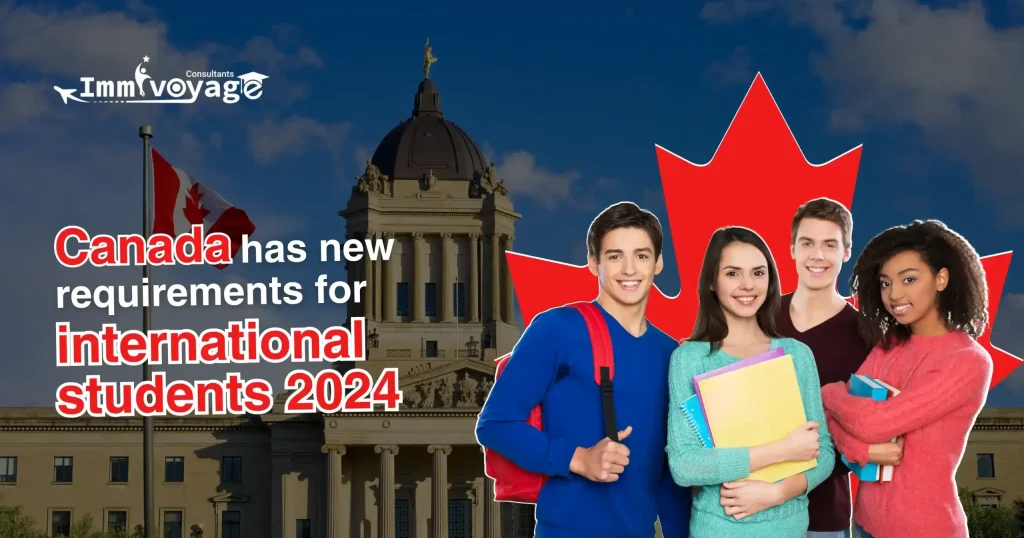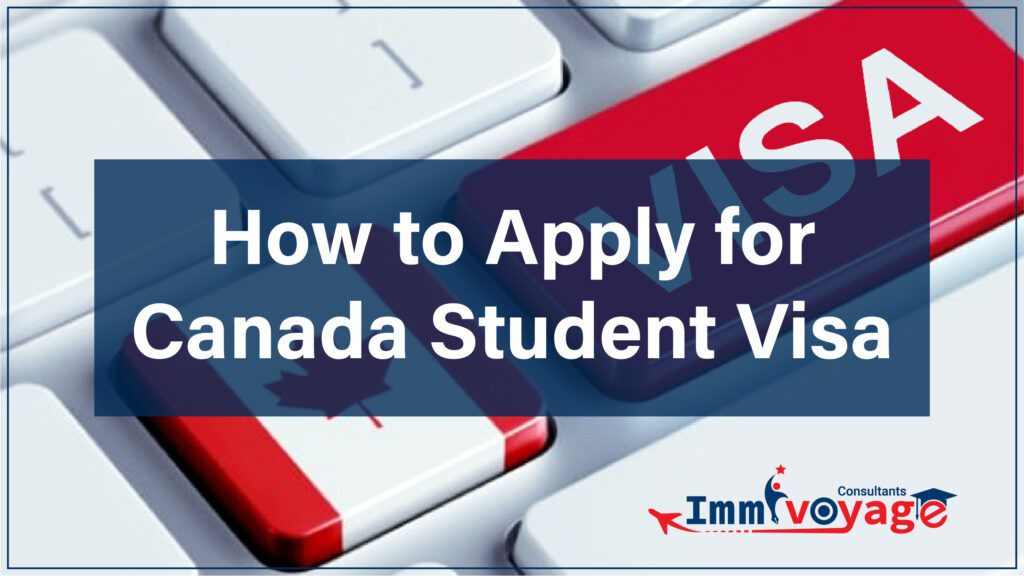Canada has introduced updated requirements for international students, shaping their educational and immigration endeavors. To navigate these changes effectively, prospective students must grasp essential insights. From revised visa regulations to academic credential evaluation and mandatory health insurance, staying informed about these latest prerequisites is crucial for aspiring students pursuing their studies in Canada.
What are the New Rules for International Students in 2024?
Canada has introduced updated guidelines for international students, significantly impacting their academic activity and immigration prospects. Understanding the new immigration rules in Canada is crucial for prospective students aiming to study in Canada. From visa regulations to academic basics, here’s a concise overview of what international students need to know:
1. Visa Regulations
The 2024 rules introduce updated visa regulations for international students aiming to study in Canada. These regulations encompass changes in eligibility criteria, documentation requirements, and application procedures. Prospective students must stay abreast of these revisions to ensure a smooth application process, potentially involving modifications in visa categories or processing times. Adhering to the updated visa regulations is essential for obtaining legal permission to study in Canada and avoiding delays or complications in the application process.
2. Academic Credentials Evaluation
Under the new rules, international students must comprehensively evaluate their academic credentials to meet Canadian standards. This evaluation process ensures that their qualifications align with the requirements of Canadian universities and colleges. It may involve utilizing recognized evaluation services to assess the similarity of foreign qualifications, assisting in the admission process, and ensuring academic integrity. Complying with these evaluation requirements is crucial for gaining admission to Canadian educational institutions and pursuing academic programs effectively.
3. Language Proficiency
Language proficiency remains a cornerstone requirement for international students in Canada, with the 2024 rules emphasizing the importance of English or French proficiency. Meeting minimum score requirements in standardized tests such as IELTS or TOEFL is essential for admission to Canadian educational institutions. Sticking to these language proficiency standards ensures that students can effectively participate in academic coursework, communicate fluently, and engage with the broader Canadian community.
4. Financial Documentation
The new rules underscore the significance of demonstrating sufficient financial resources to support international students during their studies in Canada. This involves providing evidence of funding for tuition fees, living expenses, and healthcare costs. The updated financial documentation requirements are crucial for visa approval and ensure that students can sustain themselves financially throughout their academic journey in Canada. It also helps mitigate the risk of financial hardship and ensures a smooth transition to student life in Canada.
5. Health Insurance
Health insurance coverage remains mandatory for international students studying in Canada, with the 2024 rules reinforcing this requirement. International students must obtain comprehensive health insurance coverage to access healthcare services during their stay in Canada. Abiding this regulation ensures that students are adequately protected and can address any medical emergencies that may arise during their studies. It also contributes to their overall well-being and peace of mind while living and studying in Canada.
6. Work Opportunities
The 2024 rules introduce changes to regulations governing work opportunities for international students in Canada. This includes provisions for on-campus employment, co-op programs, and post-graduation work permits. Understanding these regulations is essential for international students looking to supplement their income, gain practical experience, or pursue career opportunities in Canada after completing their studies. Adhering to these rules enables students to maximize their academic knowledge and enhance their employability in the Canadian job market.
7. Cultural Adaptation
The new rules may emphasize the importance of cultural adaptation for international students in Canada. Adjusting to a multicultural environment and engaging in community activities create a fulfilling academic experience. Embracing cultural diversity promotes a sense of belonging and enhances students’ overall well-being in Canada. Adhering to cultural adaptation guidelines helps international students integrate effectively into Canadian society, build meaningful connections, and thrive academically and socially during their studies.
How Long Does It Take to Get a Student Visa in 2024?
The duration for obtaining a student visa in 2024 can vary depending on various factors, such as the country you’re applying from, the specific requirements of the host country, and the efficiency of the visa processing system. Generally, the process involves submitting an application, providing necessary documentation (such as proof of acceptance by a recognized educational institution, financial resources, and health insurance), attending an interview (if required), and awaiting a decision from the immigration authorities.
1. Country-specific requirements
Visa processing times for student visas in 2024 vary significantly based on the regulations and efficiency of immigration systems in different countries. Some nations may have streamlined processes resulting in quicker approvals, while others may have more complex procedures leading to longer wait times.
2. Application completeness
The speed at which a student visa application is processed depends heavily on the prompt and accurate submission of all required documents. Any delays or deficiencies in providing necessary information can significantly prolong the processing time as immigration authorities await the fulfillment of all requirements.
3. Interview requirements
In certain cases, applicants may require to attend an interview as part of the visa application process. Scheduling and conducting this interview can add an extra layer of time to the overall processing period, mainly if there are limited appointment slots or if travel to an embassy or consulate is necessary.
4. Seasonal variations
Visa processing times may fluctuate throughout the year due to seasonal variations in application volumes. For instance, there could be spikes in demand during peak enrollment periods, resulting in longer processing times as immigration offices handle increased workloads.
5. Backlogs and administrative factors
Delays in visa processing can occur due to administrative backlogs, unforeseen circumstances, or internal inefficiencies within the immigration system of the host country. Such factors may extend the waiting period beyond the usual processing times outlined by immigration authorities.
6. Preparation
Thorough preparation, including researching visa requirements, assembling necessary documentation, and submitting the application well in advance of the intended start date, is crucial for expediting the visa process. By proactively addressing requirements and potential complications, applicants can minimize delays and ensure a smoother transition into their study abroad experience.
Final Words
Canada’s latest requirements for international students in 2024 reflect a continued commitment to quality education and the well-being of students. Expected international students must stay updated on these requirements, including visa regulations, language proficiency standards, and any changes in application processes. Abiding to these requirements ensures a smooth transition and a successful academic journey in Canada.



